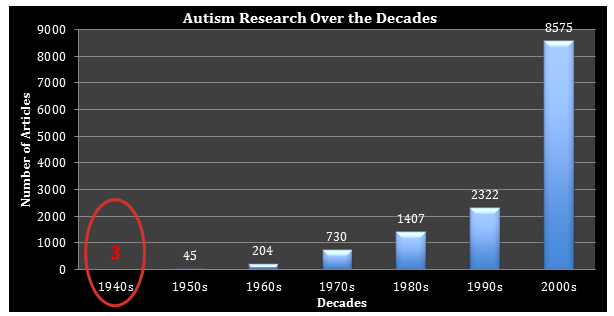The 1940s
Highlight
• Autism defined by Leo Kanner as a child’s desire to live in a static world

| 1940s | 1950s | 1960s | 1970s | 1980s | 1990s | 2000s |
Research in the 1940s
In 1943, the psychiatrist Leo Kanner of The Johns Hopkins Hospital published his famous paper, “Autistic disturbances of affective contact.”[1] In this paper, Kanner described a previously unidentified disorder in young children and defined it as a child’s desire to live in a static world. Changes in the world around a young child with autism resulted in unhappiness and anger. Although the child may have made minor concessions to this rule, like talking for the first time or moving from breast feeding to a bottle, he or she forced others to be more obsessive and static than the child itself, according to Kanner.
Ross Senter, Karthik Kumar, and Sharmila Banerjee-Basu, Ph.D.
| References: |
|

